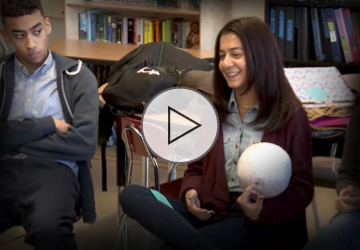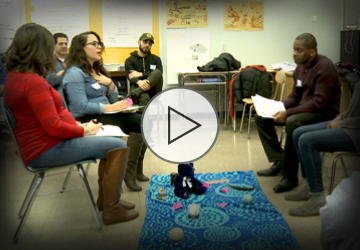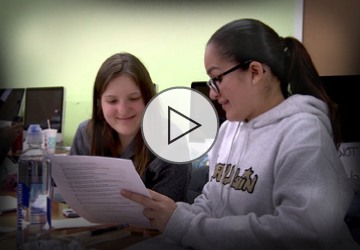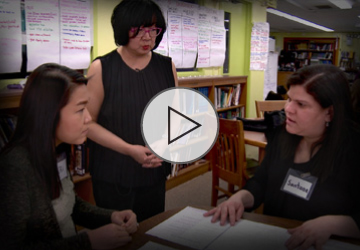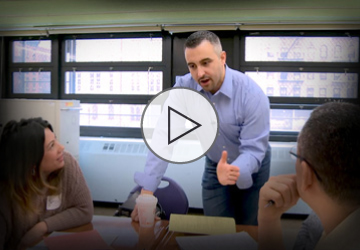- A safer, more caring environment
- A more effective teaching and learning environment
- A greater staff capacity to deal with challenging situations
- A reduction in bullying and other interpersonal conflicts
- Reductions in suspensions (principals and superintendents)
- A greater awareness of the importance of connectedness to young people (the need to belong and feel
valued by peers and significant adults) - Greater emphasis on responses to inappropriate behavior that seek to reconnect, and not further
disconnect, young people - An increased belief in the ability of young people to take responsibility for their choices, and more
people giving them opportunities to do so - A greater commitment by community members to actively listen to one another
- A focus on social and emotional learning (SEL) to build academic and social skills
Click on the group title below that best applies to you for questions designed to help process the concepts and ideas presented in the
video. These can be used as discussion guides or more personalized reflections.
-
-
Restorative Circles
Restorative Circles provide a space for our students to express themselves, learn to listen, and build a sense of community. This practice helps build a strong school culture that students can rely on and return to in times of trouble.
ELEMENTARY MIDDLE HIGH
PARENTS TEACHERS/ADMINISTRATORS PD SIGN UP
-
-
Restorative Conferences
Restorative Conferences allow our students and educators to address serious problems in their school culture in safe, mediated environments where everyone can be heard. This tool is invaluable in restoring equanimity to a school culture that is experiencing difficulties.
ELEMENTARY MIDDLE HIGH
PARENTS TEACHERS/ADMINISTRATORS PD SIGN UP
-
-
Peer Mediation
Peer Mediation empowers our students to solve their problems without relying on an adult to intervene. Peer Mediators take on leadership roles, practice empathy, and inspire other students by helping their peers work through conflict.
ELEMENTARY MIDDLE HIGH
PARENTS TEACHERS/ADMINISTRATORS PD SIGN UP
-
-
Therapeutic Crisis Intervention for Schools (TCIS)
Therapeutic Crisis Intervention for Schools is a system that empowers our educators to identify and defuse conflict before it becomes a crisis. Employing the tools offered in this PD, educators are able to build a safer, more welcoming school culture.
ELEMENTARY MIDDLE HIGH
PARENTS TEACHERS/ADMINISTRATORS PD SIGN UP
-
-
Life Space Crisis Intervention (LSCI)
Life Space Crisis Intervention gives our educators strategies for identifying problems before they happen, and strategies for dealing with conflict in the moment. By identifying various personality types and employing the 6 stages of intervention for a crisis situation, educators can defuse problematic situations and reintegrate students into their communities after a crisis.
ELEMENTARY MIDDLE HIGH
PARENTS TEACHERS/ADMINISTRATORS PD SIGN UP
